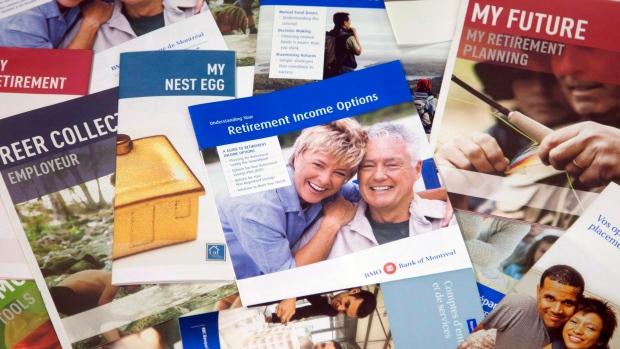Feb 25, 2022
It's the investments inside your RRSP that really matter
By Dale Jackson

Let’s be honest: the lure of a tax refund in the spring is what really motivates most Canadians to contribute to their registered retirement savings plans before the March 1 deadline.
In the scramble to raise short-term cash, the benefits of a long-term investment strategy often go overlooked. Tax advantages aside; the investments inside an RRSP are what ultimately determine its success or failure.
First, it’s important to know that the March 1 deadline only applies if you want to deduct contributions from your 2021 tax bill. Contributions can be made any time and claimed in 2022 or future years. You can avoid the annual RRSP rush by making regular contributions throughout the year.
Even if you meet this year’s deadline, contributions can be parked in cash for now and invested later.
That leaves some breathing room and the ability to stand back and plan how to get the most out of your RRSP. There are a lot of moving parts that a qualified investment adviser can help explain and implement, but informed investors can save on fees by doing it themselves.
Tax advantages
Contributions can be deducted from the top rate of your taxable income. If your income is high, and you are taxed at a higher marginal rate, the potential tax savings are bigger than if you earn less.
Those contributions can be invested and grow tax-free for decades, but are fully taxed when they are withdrawn. If your RRSP grows too much or your original contributions were made at a low marginal rate, your tax bill could be higher than the original tax savings.
It’s all about the investments
For most Canadians, actual tax savings from an RRSP are small. From an investment perspective, the greatest advantages are forced savings and a long time horizon for investments to grow.
The best way to grow investments over a long period of time, while limiting the risk of overall losses, is through diversification. Diversification can be achieved in countless ways but it generally means a diversity of equity sectors and geographic regions, and fixed income to act as a stabilizer for equity market volatility.
The balance can be adjusted according to your return goals, time horizon, and tolerance for risk.
The best investments for an RRSP
RRSP contributions can be invested in just about anything that trades on legitimate markets.
Most Canadians invest for retirement through mutual funds because it’s the only way for them to get diversification through professional investment managers.
Many mutual funds outperform their benchmark indices over long periods of time, but fees on Canadian mutual funds overall are notoriously high. Once you subtract fees, most mutual funds underperform the benchmark indices they track.
Exchange-traded funds (ETFs) can provide a similar level of diversification for a sliver of the cost of mutual funds. Instead of having a manger choose the holdings, ETFs mimic the holdings in an underlying index such as the S&P 500 and S&P/TSX Composite Index. The most basic ETFs are market-weighted; meaning the weighting of any particular holding in an ETF fluctuates with its price at any given time.
As the value of a portfolio grows, investors can break free from annual fees and diversify by investing directly in stocks. The best stocks for an RRSP are those with long histories of growing earnings over time, strong fundamentals for future earnings, and paying consistent dividends.
Generating income is important for long-term investors saving for retirement. For more sophisticated investors, the derivatives market can offer options that leverage existing holdings to generate income with very little risk.
Investments not right for an RRSP
Time is one of the RRSP’s best qualities. If you make regular contributions, it takes away much of the risk and stress of having to time volatile markets. That makes trendy or speculative investments such as cryptocurrencies, cannabis stocks, or other low-volume equities less than ideal.
Investors with strong stomachs looking for quick returns would be better trading in a tax-free savings account. You can’t deduct TFSA contributions from your income but if you hit the jackpot, withdrawals are never taxed.






